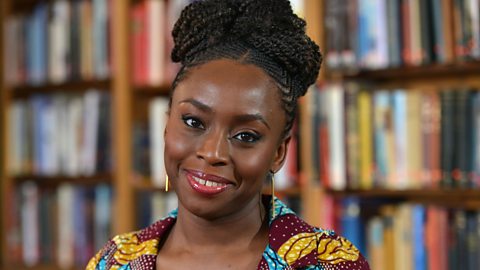Five Life Lessons with... Chimamanda Ngozi Adichie

The most crucial advice she would give her friend
“… I think it would be to teach her daughter to reject the idea of likeability. I think we teach girls constantly to mould themselves into shapes to make themselves likeable, to think about what other people think about them. And I think it’s so dangerous… I think it’s so important to teach a child – particularly a girl – that your job is not to be likeable, your job is to be your fullest self.”

'Your job is not to be likeable, your job is to be your fullest self’
Chimamanda Ngozi Adichie's advice to our daughters
Why she kept the birth of her daughter quiet
“… There’s a part of me that resents the way that women are expected to perform parenthood in a way that men are not… I just think it’s a very personal, private thing. I think often that women are judged too harshly on choices they make, choices about motherhood, choices about pregnancy… And I think they shouldn’t be. And there was just a sense in which I just didn’t want to play the game. I didn’t want to do the whole, ‘Here’s my baby bump!’… I just didn’t want to. I wanted it to be something I shared only with the people who love me and who know me.”
What to say to a mother of a son
“… I would say create a feminist son because I think that everyone should be a feminist... For me, the most important thing would be that we need to find ways to redefine masculinity… I would focus on those little ideas of redefining what it means to be a man.”
On being a 'feminist writer'
“… I don’t mind those labels as long as it’s clear that they’re not single things. And also, as long as somebody else is not defining them for me. Because I think that’s the thing that makes me sometimes prickly about labels. As somebody says to you, “Well, you’re this and by definition, you should then not do this’”.

On criticism for collaborating with Beyoncé
“… What struck me was how many people, often very, you know, the sort of slightly smug intellectual, feminist types who say to me, ‘Well, how could you?’ And I think, for me, feminism is not an exclusive party to which a few select, worthy people are invited. I really think we should open up. I think of feminism as ‘feminisms’...”
You can listen to the full interview with Chimamanda here. Follow us at @BBCWomansHour.




